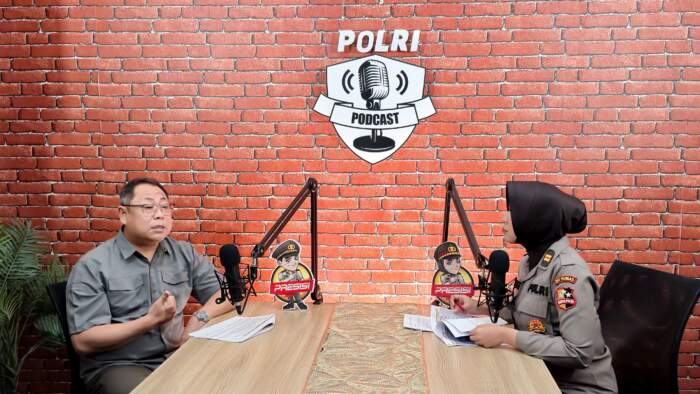Jayapura, Papua — The Cartenz Peace Operation Task Force has emphasized that security challenges in Papua stem not only from the violent actions of armed separatist groups (KKB), but also from a structured ideological movement led by Political Criminal Groups (KKP). These two forces present a dual threat that must be addressed with a measured and strategic approach.
While KKB is known for its brutal attacks involving firearms and violence targeting both security personnel and civilians, KKP operates in a more subtle and systematic manner. These groups infiltrate intellectual circles, organize mass mobilizations, and spread propaganda—primarily through digital platforms—with the ultimate goal of separating Papua from the Republic of Indonesia.
“The threat posed by KKB is visible and violent, but KKP targets the ideological consciousness of Papua’s younger generation. This is even more dangerous in the long run, as it involves cadre recruitment, intellectual agitation, and the creation of counter-narratives against the state,” said Brigadier General of Police Dr. Faizal Ramadhani, S.Sos., S.I.K., M.H., Chief of the Cartenz Peace Operation, during a podcast with Polri TV at the National Police Public Relations Division, Thursday (July 17, 2025).
KKP reportedly maintains extensive networks both domestically and abroad. Organizations such as the West Papua National Committee (KNPB) and the United Liberation Movement for West Papua (ULMWP) are at the forefront of promoting separatist agendas. Their strategies include international lobbying and mobilizing Papuan student diasporas abroad. Domestically, they operate through student networks like the Papuan Student Alliance (AMP), which has branches across various Indonesian cities.
Sensitive issues are often exploited to fuel anti-government sentiment—ranging from racism and alleged human rights violations to resistance against strategic government programs such as food security, free nutritious meals, and regional expansion policies.
“We’ve found a significant amount of disinformation and provocative narratives circulating on social media that portray government programs as new forms of colonialism. In reality, these programs are designed to improve the welfare of the Papuan people,” added Brig. Gen. Faizal.
Currently operating in 11 regencies, with main focus areas in Jayapura, Mimika, Deiyai, Dogiyai, and Yahukimo, the Cartenz Peace Operation continues to promote a legal approach that is sensitive to Papua’s socio-cultural context. Law enforcement, according to the task force, cannot be applied rigidly in a region where traditional kinship ties remain strong.
“Many residents feel culturally obligated to support their relatives in KKB or KKP, even if they do not share the same ideology. In such cases, we prioritize persuasive and humanistic engagement. We still enforce the law on core perpetrators, but for sympathizers, an anthropological approach is key,” he explained.
Despite this, the task force faces significant challenges. The Cartenz Peace Operation is considered one of the most high-risk security operations in Indonesia. Nearly every year, officers lose their lives in the line of duty. On top of that, limited infrastructure, budget constraints, and a lack of adequate reward systems remain unresolved issues.
Externally, regulatory frameworks—particularly regarding the management of digital propaganda—are still lacking. Many provocative contents spread rapidly online but remain difficult to address due to gaps in the legal system.
“The Papua issue cannot be handed over solely to the police and military. Upstream solutions such as education, infrastructure development, and the strengthening of traditional institutions must involve the coordinated efforts of all ministries and government agencies. We need a holistic and integrated approach,” Brig. Gen. Faizal concluded.
The Cartenz Peace Operation Task Force remains committed to maintaining stability in Papua through law enforcement, dialogue, and collaboration with all elements of the nation—because preserving peace and prosperity in Papua is a shared national responsibility.

